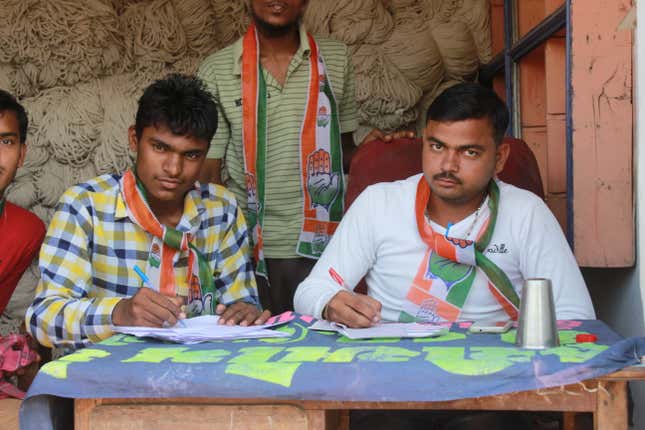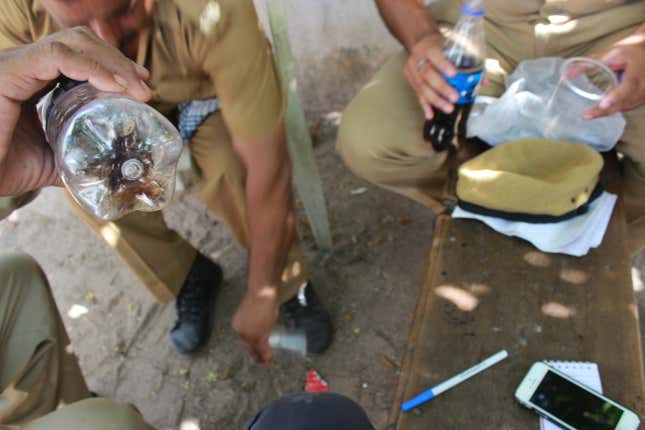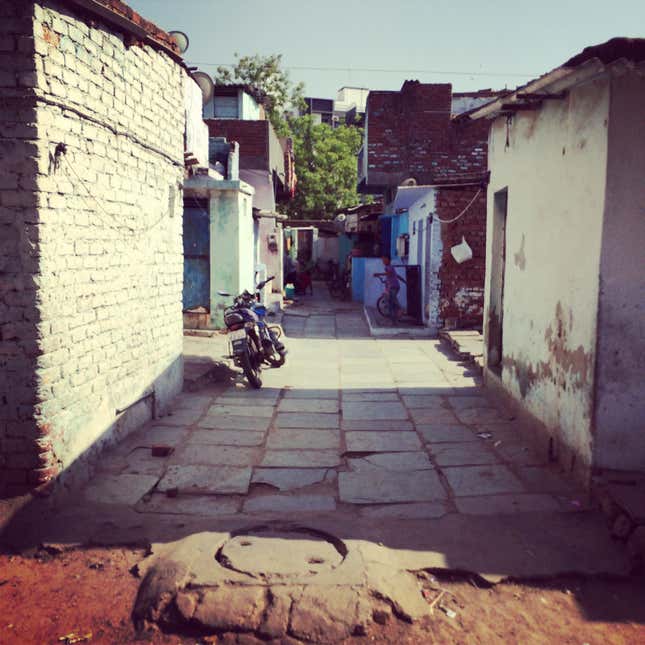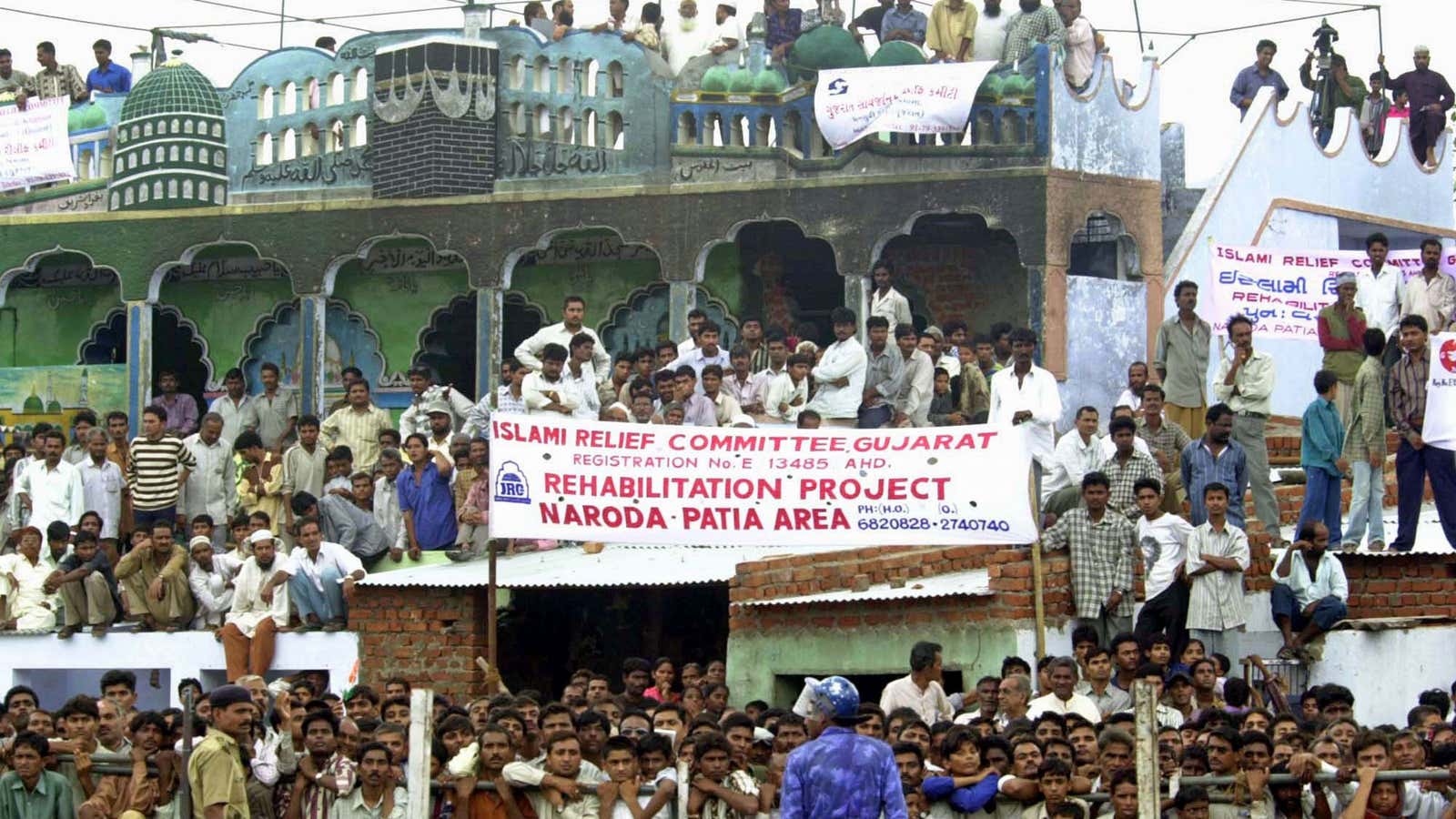Before I even arrived in Naroda Patiya, my 24-year-old guide urged me several times not to go. He said the security would be intense because it is a dangerous area and “not wise to visit.” When it became clear to him that I was determined to go, we agreed he would drop me on the main road. I shook his hand and exited the car.
“Text me when you are back at your hotel so I know you’re safe,” and off he went.
Naroda Patiya is a northeastern neighborhood of Ahmedabad and was the site of some of the most gruesome violence during the 2002 riots. After the fighting died down, the bodies of 26 men, 36 women, and 35 children were recovered. Today, there is no sign of its bloody history.
I wandered into this neighborhood and immediately passed a polling booth manned by the Congress Party. Assuming the polling station be near—likely within the 100 meter distance that political parties are required to keep from the polling station—I continued walking. This assumption turned out to be incorrect. Instead, the polling station was over a kilometer away. It was there that the Bharatiya Janata Party (BJP) set up their polling booths. There is not a single BJP poster or polling booth inside Naroda Patiya, only two Congress booths. There is also no government school in Naroda Patiya, which is why the polling station is so far away.

My guide would have been pleasantly surprised. Instead of an overwhelming security presence, six police officers manned the polling station. In response to questions about security concerns, they were nonplussed.
“This area has been safe for years,” said Virel Dave, who has been a policeman in Ahmedabad for 13 years. At this point the cold drinks arrived and we reclined under a tree and drank Thums Up soda from plastic cups. Safe and relaxed.

But over a decade after the riots, my guide, a fellow resident of Ahmedabad, is still afraid of Naroda Patiya. His reaction and warning about Muslims being “dangerous people” is more telling about the riots than what I saw on the ground. Here, the wreckage of the past is strewn across the memories of those who lived it, like 36-year-old Jamaluddin Sheikh. He lives in Naroda Patiya and melts down iron scraps that are recycled into other goods for a living.
“For Naorda, I want a good government that thinks about us. We want Congress so that BJP does not come. It’s not that Congress is a very good government, but we support Congress to stop BJP.”
When it comes to the Aam Aadmi Party, he is supportive but pragmatic, “Kejriwal has no influence in the area where we live. I think about voting for Kejriwal but the candidate that they have put in this place is not strong enough to win. I want to vote for someone who can win, is good and works for us.”
We walk up the lane into Naroda Patiya, the same lane the rioters stormed down over a decade ago.

“I was here in 2002 and so were others of this basti (colony). To describe what happened here would take a book and take a long time, it’s a very long story. But, despite that, we decided to stay here and bring up our children here,” says Sheikh.
He smiles and gestures down a lane where the homes are painted in bright beautiful colors and women are hanging clothes to dry. If you did not know this place had a history of violence, there would be no reason to look at it any differently.
“Everywhere in India you can find these things. There are Muslims and non-Muslims everywhere. This is a secular nation and everyone has an equal right in this nation and we want to live as equals.”
I had already texted my friend that I was safe several minutes prior.
